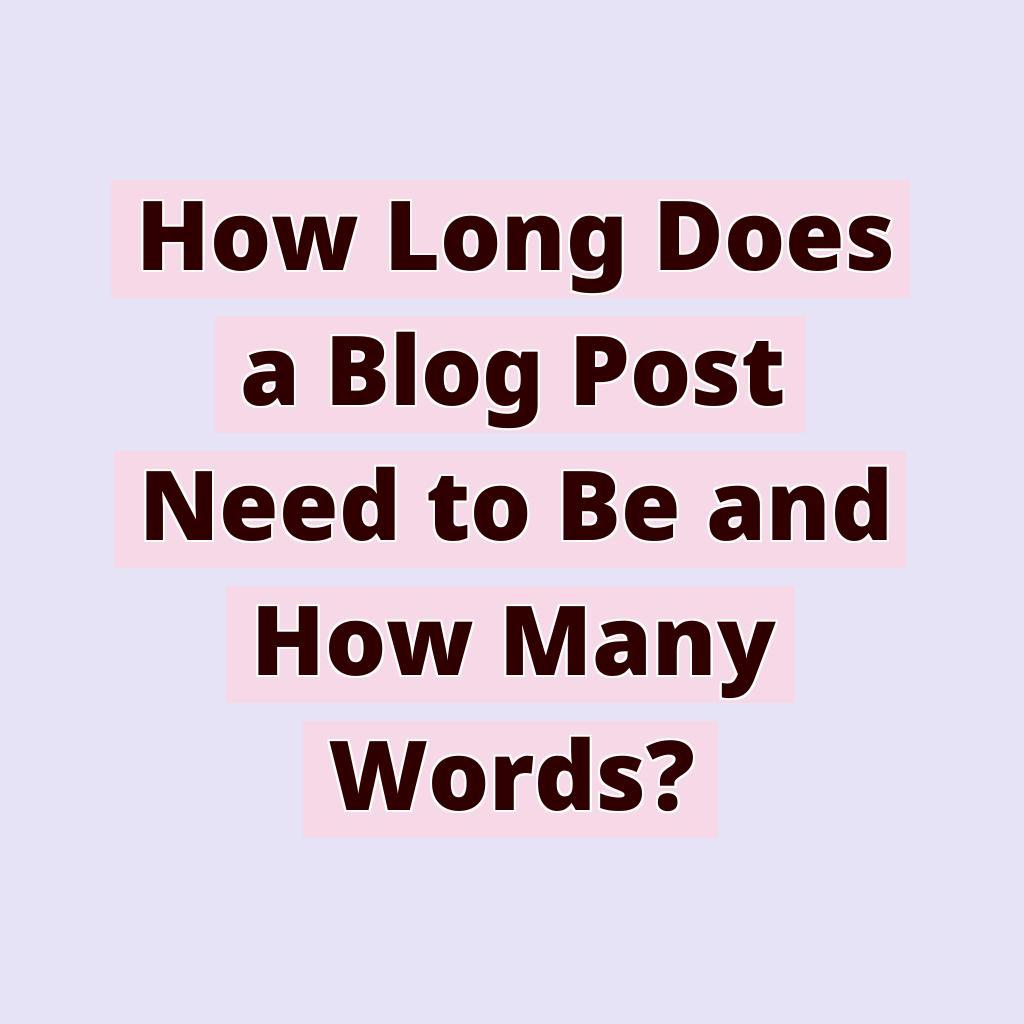In the vast realm of content creation, one burning question often plagues the minds of bloggers and writers: “How long should my blog post be?” The answer to this question isn’t as straightforward as one might hope. The optimal length for a blog post depends on various factors, including search engine optimization (SEO), user engagement, and the overall quality of the content. In this article, we will delve into the intricacies of blog post lengths and explore how word count affects performance and user engagement. By the end, you’ll have a better understanding of finding the ideal length for your blog posts.
Optimal Blog Post Length for SEO
When it comes to search engine optimization, blog post length plays a crucial role in determining its visibility in search engine results. Search engines, such as Google, often favor longer blog posts for two primary reasons. Firstly, longer posts tend to provide more in-depth information and value to readers, aligning with the search engine’s objective of delivering high-quality content. Secondly, lengthier posts tend to include a greater number of keywords and phrases, which can enhance the post’s visibility in search results.
However, it’s important to note that long-form content doesn’t automatically guarantee better search engine rankings. While longer posts have their advantages, they must also be well-written, informative, and engaging. Simply padding a post with unnecessary words can harm its overall quality and readability, ultimately leading to a poor user experience.
How Word Count Affects Blog Post Performance
Word count has a significant impact on the performance of blog posts. Various studies and analyses have been conducted to determine the relationship between word count and key performance indicators (KPIs) such as page views, time on page, and social shares. The findings reveal some interesting insights.
In general, longer blog posts tend to generate more page views and have higher social sharing rates. This can be attributed to the comprehensive nature of longer posts, which often cover a topic in greater detail and provide a more extensive analysis. Additionally, longer posts have a higher likelihood of being shared by readers who find them valuable and informative.
On the other hand, shorter blog posts can also be effective in certain situations. They are often easier to consume and can cater to readers with shorter attention spans. Shorter posts also have the advantage of being more concise and to the point, making them ideal for topics that don’t require extensive explanations or analysis.
The Impact of Blog Post Length on User Engagement
User engagement is a crucial metric for measuring the success of a blog post. It encompasses various factors, including bounce rate, time on page, comments, and social shares. The length of a blog post can influence user engagement in several ways.
Longer blog posts have the potential to captivate readers and keep them engaged for a longer duration. In-depth content that provides valuable insights and solutions can hold the attention of readers, encouraging them to spend more time on the page. This increased time on page signals to search engines that the content is valuable and relevant, further boosting its visibility.
Conversely, shorter blog posts can also foster high levels of engagement. These posts are often concise and easy to consume, allowing readers to quickly gather the information they need. This can lead to higher interaction rates, such as comments and social shares, as readers find the content helpful and share-worthy.
Why Quality Content Matters More Than Word Count
While word count and blog post length are important considerations, they should never overshadow the significance of quality content. Regardless of the length, a blog post must provide value, be well-written, and cater to the needs of the target audience. Quality content is what drives user engagement, encourages social sharing, and establishes a blogger’s credibility and authority in their respective niche.
Instead of focusing solely on meeting a specific word count, writers should prioritize delivering valuable insights, practical tips, and unique perspectives. By doing so, they can create content that resonates with readers and keeps them coming back for more. Ultimately, it is the quality of the content that will have a lasting impact on the success of a blog post, not just its length.
The Bottom Line: Finding the Ideal Length for Your Blog Posts
In the world of blogging, there is no one-size-fits-all answer to the question of blog post length. The ideal length varies depending on factors such as the topic, target audience, and goals of the blog. It is essential for bloggers to experiment and find the sweet spot that works best for their specific circumstances.
Consider conducting A/B tests by publishing posts of different lengths and analyzing the performance metrics. This data-driven approach can help determine which blog post lengths perform best in terms of SEO, user engagement, and overall success. Additionally, pay attention to reader feedback and comments to gain insights into their preferences and expectations.
In conclusion, the length of a blog post should be determined by a balance between SEO considerations, user engagement, and the delivery of high-quality content. By finding the optimal length for your blog posts, you can maximize their visibility, captivate your audience, and establish yourself as an authoritative voice in your niche. So, go ahead and experiment with different lengths while keeping quality at the forefront, and watch your blog flourish.
